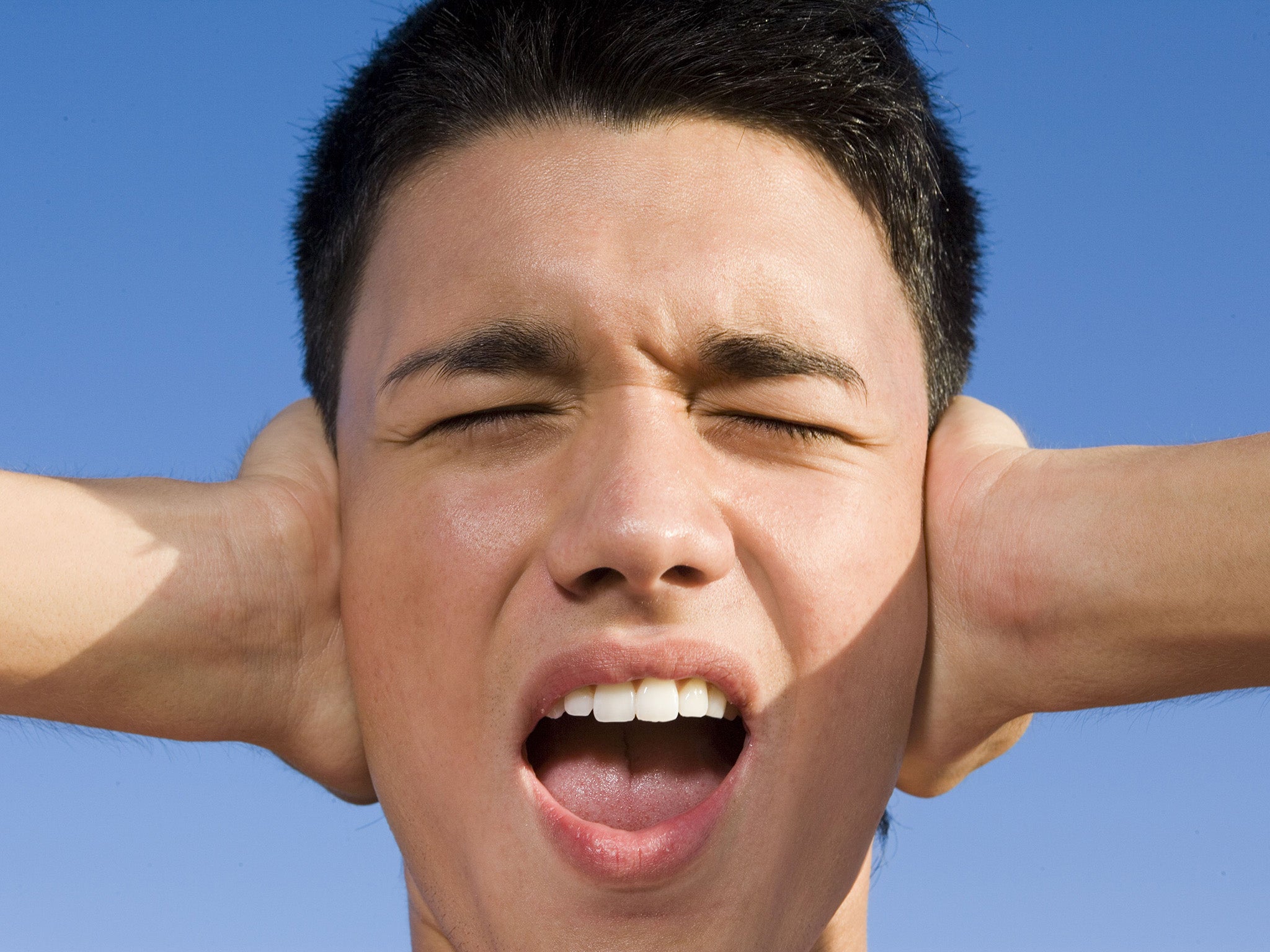Misophonia: Why the sound of loud chewing makes you angry
People who suffer from misophonia have an extreme response to certain sounds - especially chewing, tapping or sniffing

Your support helps us to tell the story
From reproductive rights to climate change to Big Tech, The Independent is on the ground when the story is developing. Whether it's investigating the financials of Elon Musk's pro-Trump PAC or producing our latest documentary, 'The A Word', which shines a light on the American women fighting for reproductive rights, we know how important it is to parse out the facts from the messaging.
At such a critical moment in US history, we need reporters on the ground. Your donation allows us to keep sending journalists to speak to both sides of the story.
The Independent is trusted by Americans across the entire political spectrum. And unlike many other quality news outlets, we choose not to lock Americans out of our reporting and analysis with paywalls. We believe quality journalism should be available to everyone, paid for by those who can afford it.
Your support makes all the difference.Does hearing repititive sniffing makes you want to claw your eyes out?
Have you ever considered getting off the bus or Tube because someone is chewing loudly?
You're not alone. People with misophonia find themselves irritated, angered or distressed by specific sounds, especially those made by other people
Specific 'trigger sounds' can ruin the lives of those with misophonia, who feel uncontrollable emotions and even physically painful symptoms which cause them to isolate themselves and suffer severe anxiety.
What is misophonia?
Misophonia, translated literally as ‘hatred of sound’ is a condition in which certain sounds evoke extreme reactions from the sufferer.
Also known as selective sound sensitivity syndrome, misophonia is commonly associated with the hatred of sounds produced by other individuals such as chewing and eating sounds, throat clearing, sniffing or tapping.
The hatred is so intense that people with the condition may be unable to engage in social situations and will struggle in the workplace due to an inability to be around those who trigger a response.
What happens when you have misophonia?
Patients with misophonia report panic, anxiety and rage which feels uncontrollable.
Suffers also report physical effects such as pressure in the head, chest or entire body and increased muscle tension and tightness.
Some people report an increase in body temperature, blood pressure or heart rate when exposed to triggers, while others report sweaty palms, difficulty breathing and physical pain.
People reported thinking negative thoughts when experiencing trigger sounds, such as ‘I want to punch this person’, ‘I hate this person’ and ‘are they doing this on purpose?’
Janie Richardson, writing for the Irish times, said: “I would describe my reaction as akin to hearing fingernails on a million blackboards. Every fibre of my being contracts and I feel such revulsion I want to scream and run away.”
Coping with misophonia
The most common method that people with misophonia use is avoidance – which can lead to disruption in their everyday lives.
A sufferer recounting their experience on Misophonia UK said he avoids any situation that takes place in a group setting, including lectures, the cinema, restaurants and plays.
Another sufferer, a 51year-old woman, recounts being sectioned because she could not stand being in the same room as her baby daughter’s breathing sounds.
Some patients use mimicry as a coping mechanism because they feel as though making the sound themselves will ‘cancel out’ the sound another has made.
Other patients cope using earplugs or headphones, or engaging in a dialogue with themselves to try and calm down.
Treatment
Medication is not normally used to treat the condition, though anti-depressants, anti-anxiety medication and ADHD medication have been used to try to alleviate symptoms.
Cognitive behavioural therapy is often used in order to train patients to combat negative thoughts and feelings they get in response to certain sounds.
Patients will learn to cope with feelings of panic and anxiety, as well as developing the ability to ignore the negative emotions.
Join our commenting forum
Join thought-provoking conversations, follow other Independent readers and see their replies
Comments